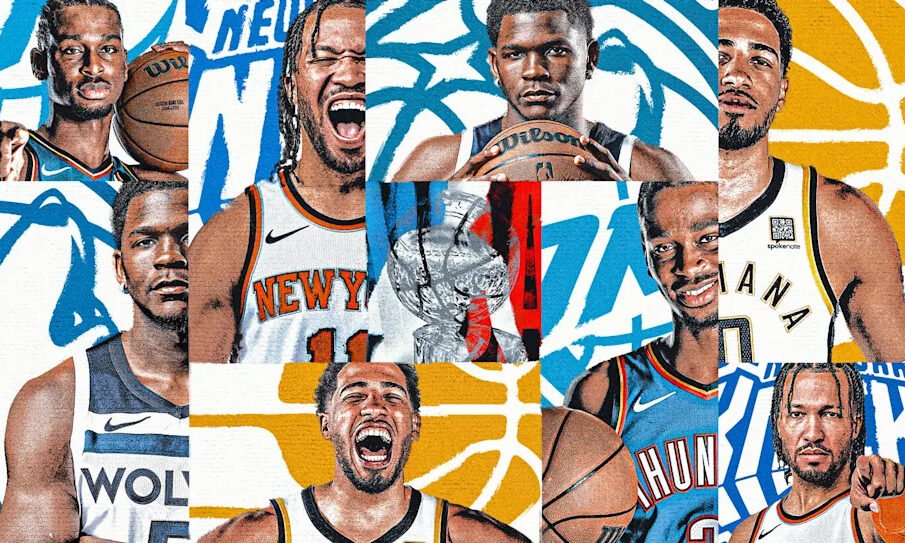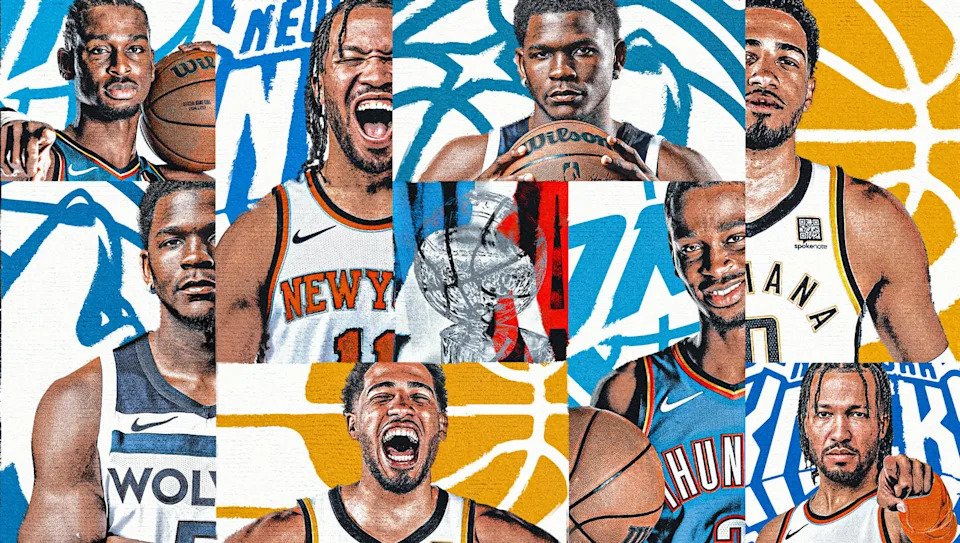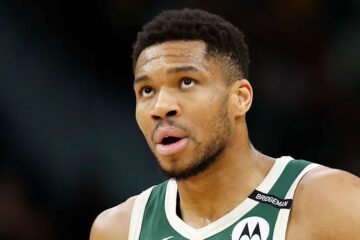The NBA’s new guards: Tyrese Haliburton, Anthony Edwards, Shai Gilgeous-Alexander, Jalen Brunson among the greats?

Two years ago, as Jalen Brunson emerged as an All-Star point guard for the NBA’s New York Knicks, the head coach of the WNBA’s Las Vegas Aces, Becky Hammon, declared on an ESPN panel, “If your best player is small, you’re not winning. John Stockton, Allen Iverson, Steve Nash. You could go down the list.”
“Steph Curry is the only one,” she said, and she was mostly right, excepting Isiah Thomas, among others.
Advertisement
Guards, especially small ones, have rarely led their teams to championships in the NBA.
“And I love Jalen Brunson,” added Hammon, “but you’re gonna put him on the level of a 1A?”
That was then. This is now, when the Knicks, led by Brunson, are in the Eastern Conference finals. They lost Game 1 in heartbreaking fashion to an Indiana Pacers team led by another point guard, Tyrese Haliburton, who, akin to Brunson, has recently been derided as “the league’s most overrated player.”
Whichever team wins the title this season will be led by a guard. Out West, the Oklahoma City Thunder, as betting favorites, according to BetMGM, are captained by Shai Gilgeous-Alexander, the NBA’s MVP. And the Minnesota Timberwolves are led by Anthony Edwards, a smooth and skilled 23-year-old dynamo.

(Joseph Raines/Yahoo Sports Illustration)
Only one other time has each of the four conference finalists featured a guard as its best player — 1991, as Michael Jordan’s Chicago Bulls, Isiah Thomas’ Detroit Pistons, Magic Johnson’s Los Angeles Lakers and Clyde Drexler’s Portland Trail Blazers filled the field. Think about them for a moment: MJ, Isiah, Magic and Clyde, four of the 18 guards on the NBA’s 50th anniversary team. Think of this year’s class in that light.
Advertisement
The NBA was dominated by big men through the 1960s and for most of the 1970s — until the arrival of Magic Johnson, and even he was 6-foot-9. The league has been run in more recent decades by similarly big and ball-dominant forwards, from Larry Bird and Julius Erving to LeBron James and Kevin Durant.
By our count, only 22 of the NBA’s 77 championship teams have been led by guards, and 18 of those titles have been won by six of the all-timers at the guard positions: Stephen Curry, Isiah Thomas and Magic Johnson; Dwyane Wade, Kobe Bryant, and Michael Jordan. You could make a case that this list covers the three greatest players in league history at both the point and shooting guard positions. Which means, if you are not among the very best guards ever, it is awfully difficult to lead your team to a championship.
The other guards who led their teams to titles are also Hall of Famers: Chauncey Billups (2004), Dennis Johnson (1979) and Walt Frazier (1970, 1973). They won with ensemble supporting casts, if they were not part of the ensemble themselves. You can make a case that none of them were their teams’ best player.
Ben Wallace, a Hall of Famer, was the only All-NBA member of the 2004 Detroit Pistons. Jack Sikma, a Hall of Famer, finished seventh in MVP voting on the 1979 Seattle SuperSonics. And Willis Reed, a Hall of Famer, was the league’s MVP in 1970 and New York’s Finals MVP for both championships (though Frazier deserved at least one of them when Reed was injured in 1970, as he posted a 36-7-19 in a Game 7 win).
Advertisement
As good as Jalen Williams, Julius Randle, Karl-Anthony Towns and Pascal Siakam are for the Thunder, Wolves, Knicks and Pacers, respectively, there is no mistaking who the best player is on each of those franchises. The question, then: To which group do this year’s guards belong, all-timers or anomalies?
Here is how the four star guards stack up against the others who led their teams to titles. They are sorted by playoff Player Efficiency Rating. (Production and efficiency numbers are also playoff statistics.)
Gilgeous-Alexander is, believe it or not, on a similar trajectory to the greatest guards ever. The 26-year-old is this season’s MVP, and if he wins Finals MVP en route to a ring, his will absolutely belong among the greatest guard seasons ever. Curry, Jordan and Magic are the only guards to win both awards in the same year. Think about it for a second. Curry, Jordan and Magic, arguably the three best guards ever. And SGA.
Advertisement
Haliburton, 25, and Edwards, 23, are so young that it is hard to wrap our heads around what a title would mean for either of them. No guards but Wade and Magic have led a team to a championship at so young an age. Either Haliburton, Edwards or both may be on meteoric trajectories toward the pantheon, even if we have not yet fully considered that possibility. Most of their damage could be done in years to come.
Brunson’s case may be the most interesting one. He is a 28-year-old former second-round pick who will make his second All-NBA team in as many seasons. Nobody will call him the best player in the league if New York wins the championship. (Nor will we say that about Haliburton, by the way. We might consider the possibility that Edwards could be the NBA’s best player at some point very soon if he should win.)
Still, Brunson has received MVP votes in each of the past three seasons. He finished 10th this season and fifth last season. He has been somewhere among the 10 best players in the NBA for two years running, and he stands 6-foot-2. A 6-4 Dennis Johnson was top-10 twice in a watered-down NBA. A 6-3 Billups was a top-10 player for a season. Brunson can be like them, at once a Hall of Famer and a historical anomaly.
Advertisement
But Frazier was, for six years straight, either first- or second-team All-NBA. He is a two-time champion, a Hall of Famer, a New York legend to this day as the team’s color commentator. He is the embodiment of those ’70s Knicks. That he is the ceiling for Brunson is as fitting as it gets. Get Brunson a statement suit.
This is what these playoffs have given us, memories refreshed, reminding us of all-time greats. Make no mistake: These guards — Gilgeous-Alexander, Edwards, Brunson and Haliburton — belong among them.








